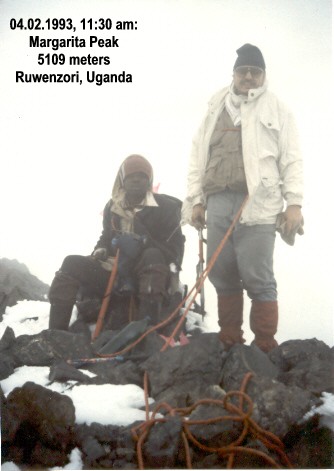Von den Lords of Poverty auf die Road to Hell geschickt
Über seine Busfahrt auf seinem Weg aus dem Sudan nach Nairobi/Kenia hält Paul Theroux folgende Eindrücke fest:
(Hervorhebungen durch mich.)
Even the most prosperous towns in this part of
As this was a coffee-growing area, anyone of these vehicles could have belonged to the satirical figure of Dickens's Mrs Jellyby and her African Project. She had said, 'We hope by this time next year to have from a hundred and fifty to two hundred healthy families cultivating coffee and educating the natives of Borrioboola-Gha.'
Mine is not a complaint, merely an observation, because hearing horror stories about uneducated starving Africans, most Americans or Europeans become indignant and say, Why doesn't someone do something about it? But much was apparently being done - more than I had ever imagined. Since the Kenyan government cared so little about the well-being of its people, concerns such as health and education had been taken up by sympathetic foreigners. The charities were well established. Between the Bata Shoes retail store and the local Indian shop, you would find the office of WorldVision or Save the Children - 'Blurred Vision' and 'Shave the Children' to the cynics. These organizations had grown out of disaster relief agencies but had become national institutions, permanent fixtures of welfare and services.
I wondered - seriously wondered - why this was all a foreign effort, why Africans were not involved in helping themselves. And also, since I had been a volunteer teacher myself, why, after forty years, had so little progress been made?
An entire library of worthy books describes at best the uselessness, at worst the serious harm, brought about by aid agencies. Some of the books are personal accounts, others are scientific and scholarly. The findings are the same.
‘Aid is not help' and 'aid does not work' are two of the conclusions reached by Graham Hancock in his The Lords of Poverty: The Power, Prestige and Corruption of the International Aid Business (1989), a well-researched account of wasted money. Much of Hancock's scorn is reserved for the dubious activities of the World Bank. ‘Aid projects are an end in themselves,' Michael Maren writes in The Road to Hell: The Ravaging Effects of Foreign Aid and International Charity (1997). One of Maren's targets is the charity Save the Children, which he sees as a monumental boondoggle. Both writers report from experience, having spent many years in
While these writers are kinder to volunteers in disaster relief than to highly paid bureaucrats in institutional charities, both of them also assert that all aid is self-serving, large-scale famines are welcomed as a 'growth opportunity' and the advertising to stimulate donations for charities is little more than 'hunger porn.'
'Here is a rule of thumb that you can safely apply wherever you may wander in the
As proof of that rule of thumb, the most salutary and least cited book about development in
Labor-intensive projects are few in
(Seiten 201-203 in der Pinguin-Ausgabe von 2002)




Keine Kommentare:
Kommentar veröffentlichen